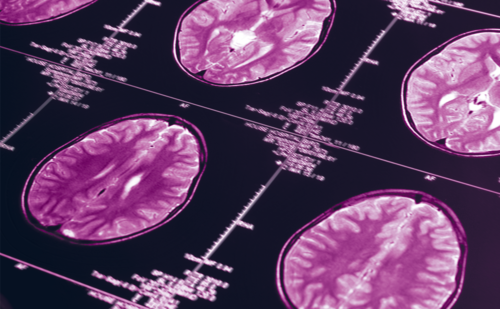Global prevalence of dementia: a Delphi consensus study
Ferri C P, Prince M, Brayne C et al.
Lancet (2005);366: pp. 2,112–2,117
Global prevalence of dementia: a Delphi consensus study
Ferri C P, Prince M, Brayne C et al.
Lancet (2005);366: pp. 2,112–2,117
Alzheimer’s disease is one of the most disabling health conditions worldwide. Twelve international experts were provided with a systematic review of published studies on dementia and asked to provide prevalence estimates for every WHO world region, for men and women combined, in five-year age bands from 60 to 84 years, and for those aged 85 years and older. UN population estimates and projections were used to estimate numbers of people with dementia in 2001, 2020 and 2040. The authors of this paper estimated incidence rates from prevalence, remission and mortality.
Escitalopram in the treatment of depressed elderly patients
Kasper S, de Swart H, Friis Andersen H
Am J Geriatr Psychiatry (2005);13(10): pp. 884–891
Management of depression in elderly patients presents a significant medical challenge, and there is a need for further clinical trials. The authors of this paper examined the efficacy and tolerability of escitalopram and fluoxetine versus placebo in the treatment of elderly patients with major depressive disorder (MDD).
Onset of action of escitalopram compared with other antidepressants: results of a pooled analysis
Kasper S, Spadone C, Verpillat P, Angst J
Int Clin Psychopharmacol (2006);21(2): pp. 105–110
In general, antidepressant drugs are regarded as too slowly acting. Most patients who benefit from treatment require more than two weeks of therapy to respond. An efficacious and well-tolerated antidepressant drug with an earlier onset of effect would be of greater interest to clinicians and patients. In conclusion, by using the Montgomery- Asberg Depression Rating Scale (MADRS) and pooling data from the escitalopram clinical trials in major dipressive disorder comparing escitalopram with other active antidepressant drugs, escitalopram was shown to be a fast-acting anti-depressant with a more rapid onset of effect than the comparators, particularly other selective serotonin re-uptake inhibitors.
Contribution of peptides to multiple sclerosis research
Alcaro M C, Papini A M
Clin Linguist Phon (2006);20(2–3): pp. 125–134
On account of the disease complexity and heterogeneity of multiple sclerosis (MS), its pathogenesis remains unknown despite extensive research efforts, and specific effective treatments have not yet been developed. Peptide-based research has been important in attempts to unravel particular aspects of this complex disease, including the characterisation of the different molecular mechanisms of MS, with the goal of providing useful products for immunemediated therapies. This review presents an overview of the contributions of peptide science to MS research and discusses future directions of peptide-based investigations.
Response to antiepileptic drug therapy: winners and losers
Brodie M J
CNS Spectr (2006);11(2 suppl. 2): pp. 33–34
Evidence suggests that the vast majority of people with epilepsy will respond to their first or second treatment regimen or will be refractory de novo. Two patients with symptomatic epilepsy secondary to underlying cortical dysplasias are presented to illustrate these different scenarios. Clinical observations can provide insights into the processes underlying pharmacoresistance.
Effects of methylphenidate on cognitive function and gait in patients with Parkinson’s disease: a pilot study
Auriel E, Hausdorff J M, Herman et al.
Clin Neuropharmacol (2006);29(1): pp. 15–17
Twenty-one patients with Parkinson’s disease (PD) were studied before and two hours after the administration of a single dose of 20mg of methylphenidate. In response to methylphenidate, attention significantly improved, whereas memory and visual–spatial performance were unchanged. Gait speed, stride time variability and timed up and go times (demonstrated measures of fall risk) significantly improved.
Inflammatory markers and in-hospital mortality in acute ischaemic stroke
Rallidis L S, Vikelis M, Panagiotakos D B et al.
Atherosclerosis (2005), E-pub ahead of print
There is substantial evidence that cerebral ischaemia triggers an inflammatory response. The authors of this paper examined the short-term prognostic value on mortality of C-reactive protein (CRP), interleukin (IL)-6 and serum amyloid A (SAA) in patients with ischaemic stroke. They demonstrated that in-hospital mortality in ischaemic stroke is associated with an exacerbation of inflammatory response as it is reflected by the higher serum levels of IL-6, CRP and SAA.
The anti-dementia drugs: myth, hype or reality?
Herve A, Bentue-Ferrer D L
Clin Neuropharmacol (2006);29(1): pp. 10–14
The neurodegenerative diseases are in need of drugs that are capable of treating their many different presentations. Some drugs have recently been developed and approved by the authorities for use in Alzheimer’s disease; their beneficial effects are no longer questionable. The neurosciences teach that there is a biology of cognition and that the brain is the permanent area of the confrontation between neurogenesis and apoptosis. Pharmacology has taken this new understanding on board and has finally defined its objective as preventing the decline of the neuron as much as of cognitive performance. It remains for clinicians to confirm the authenticity of this worldwide project.













